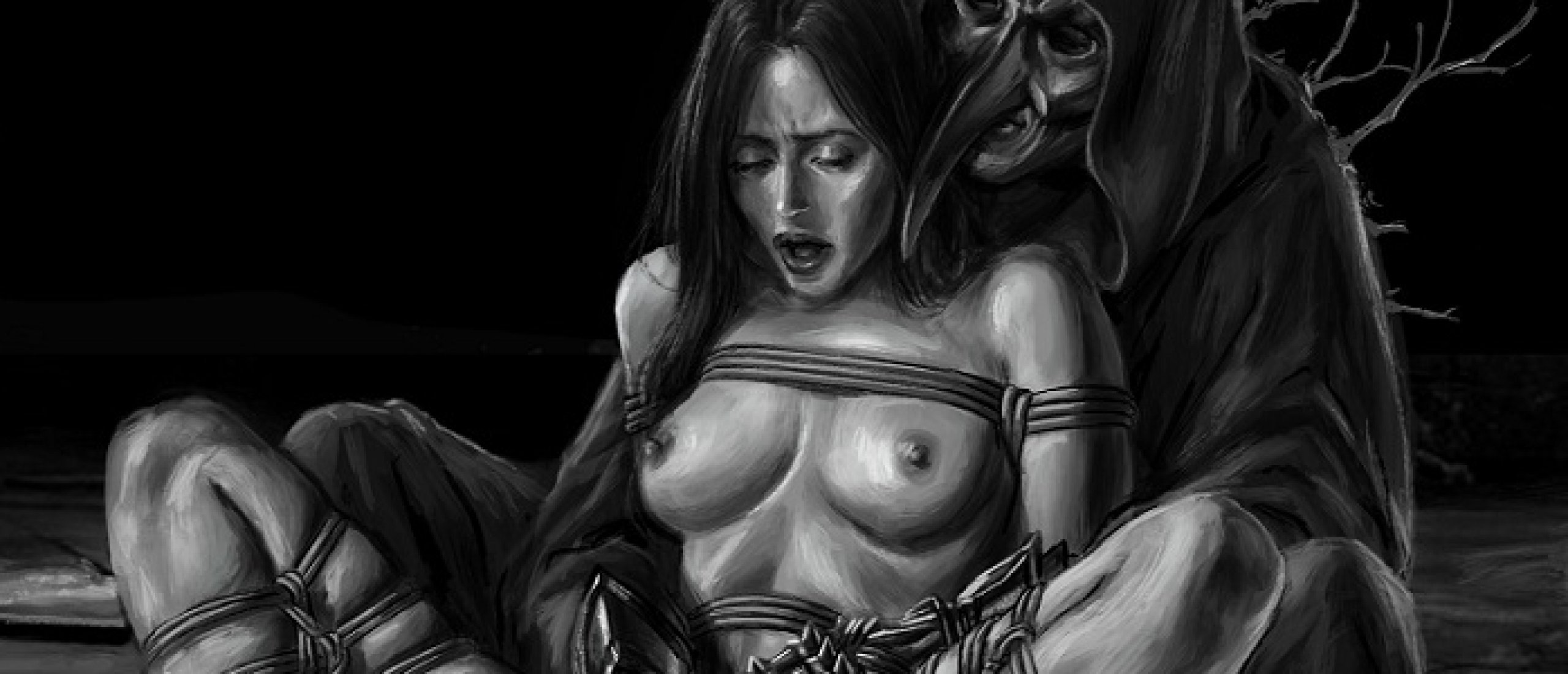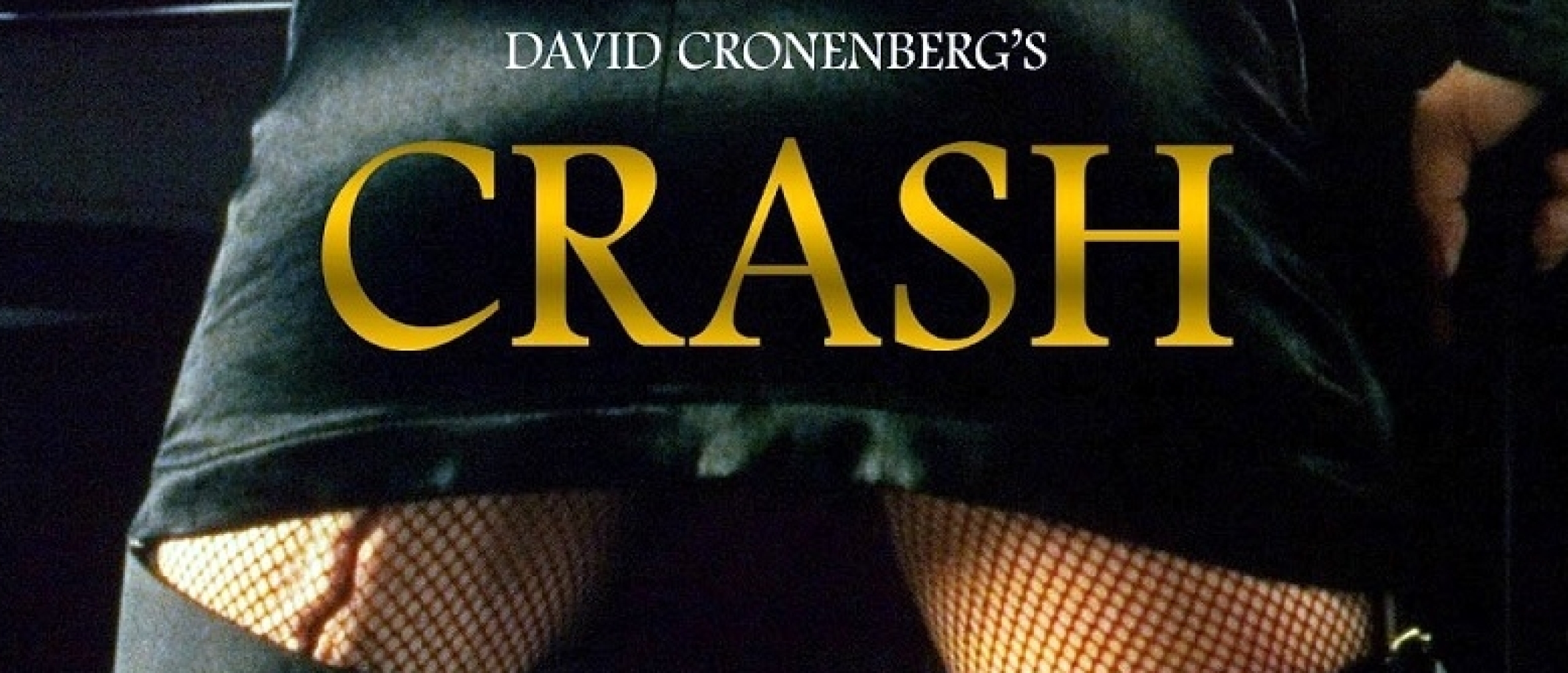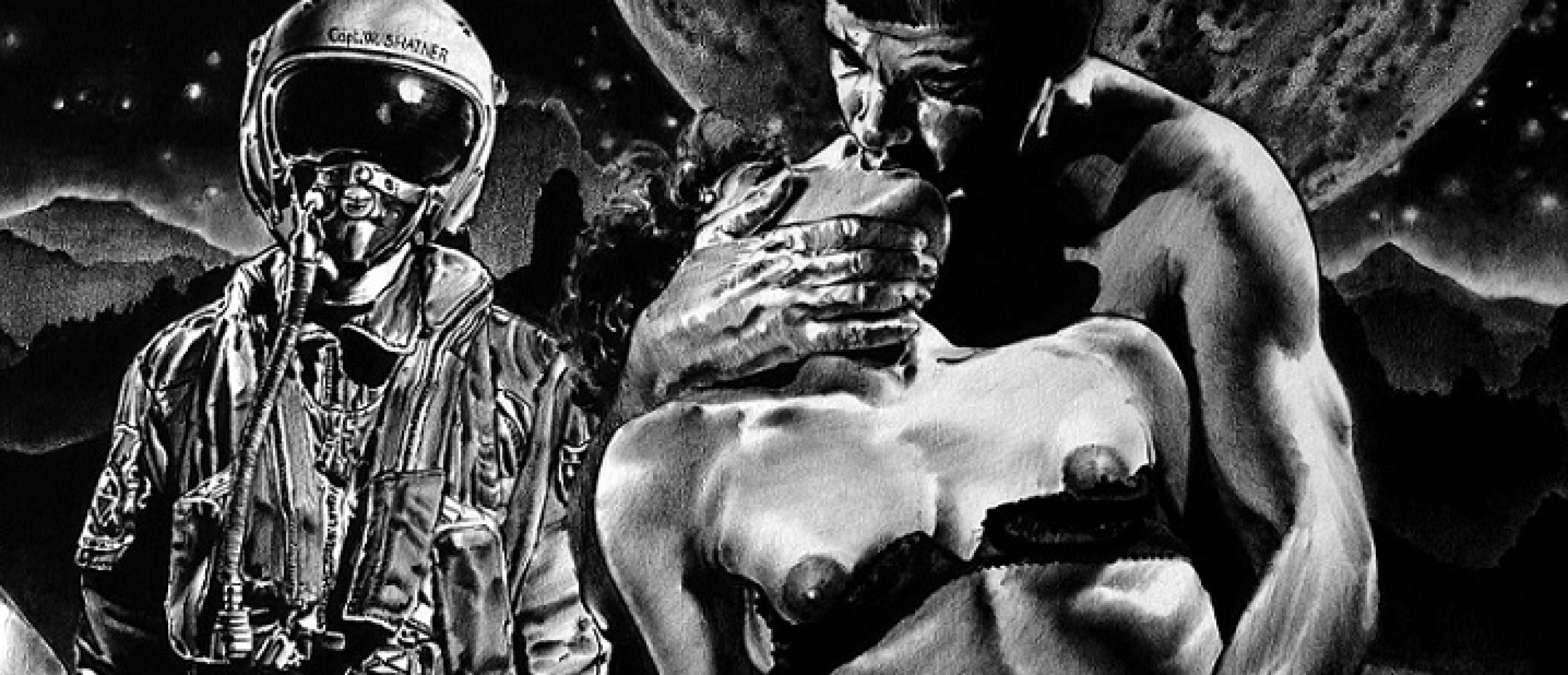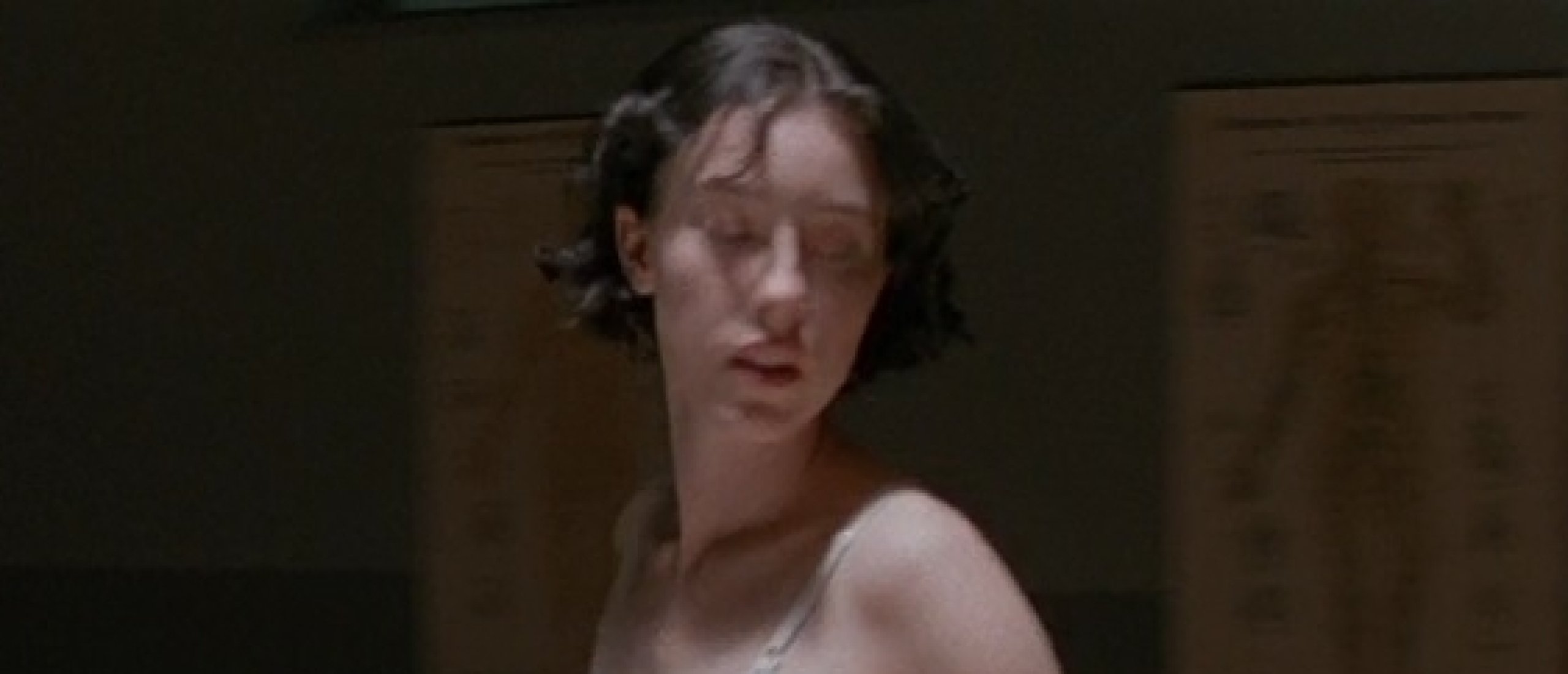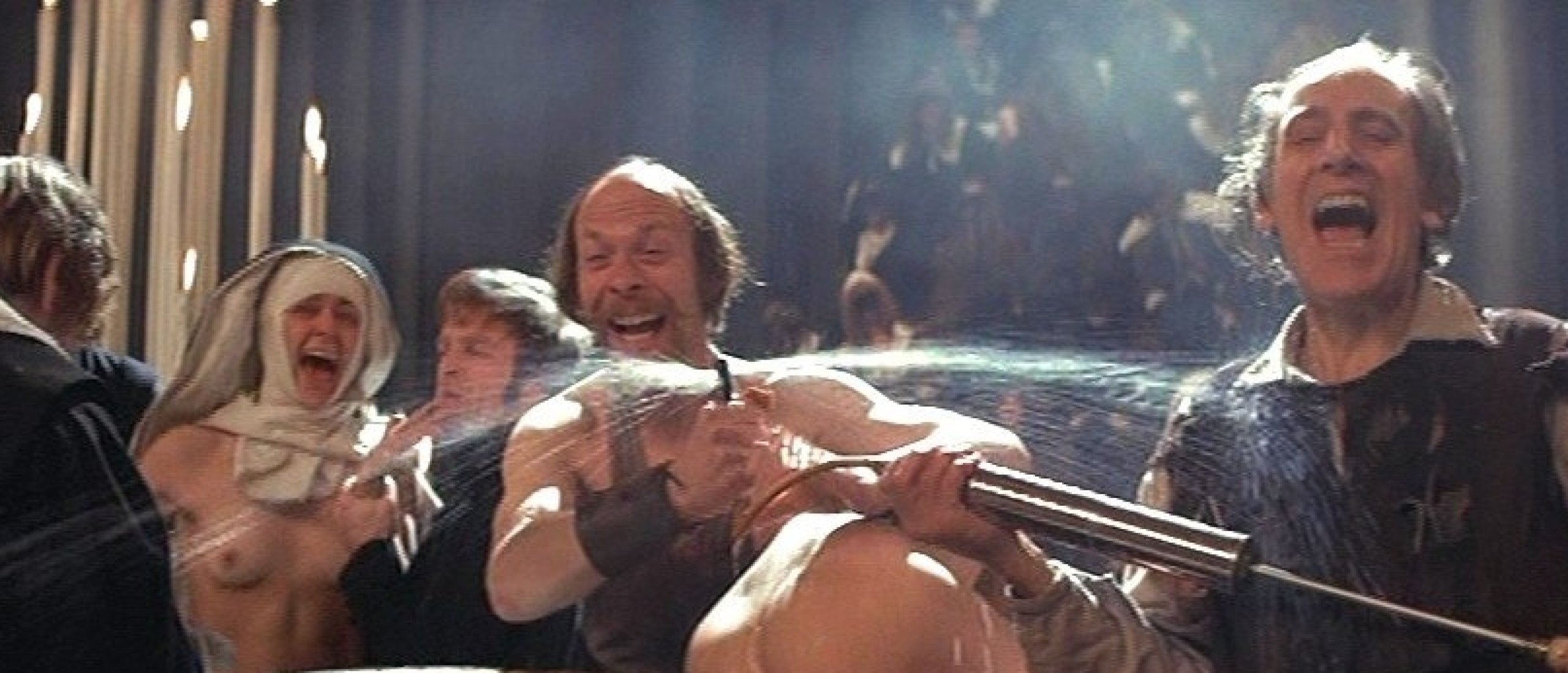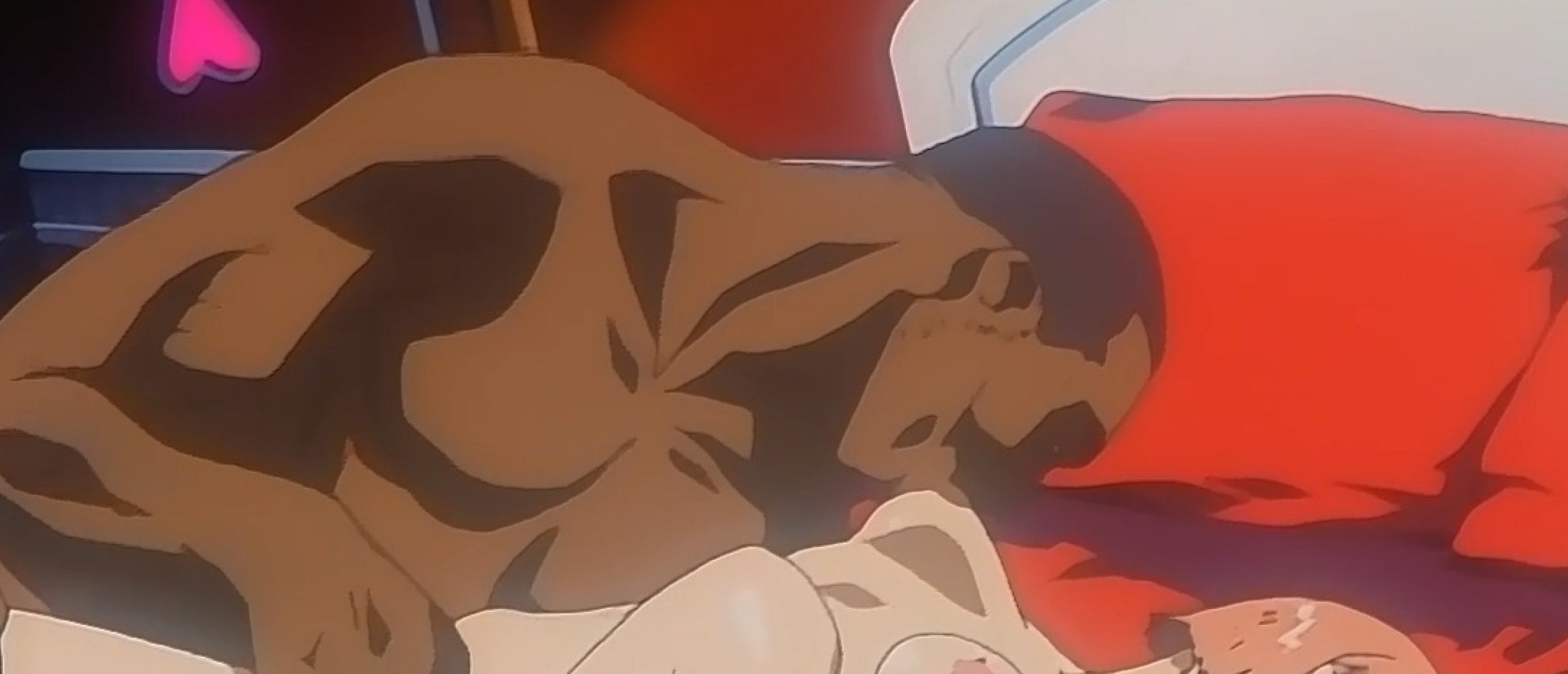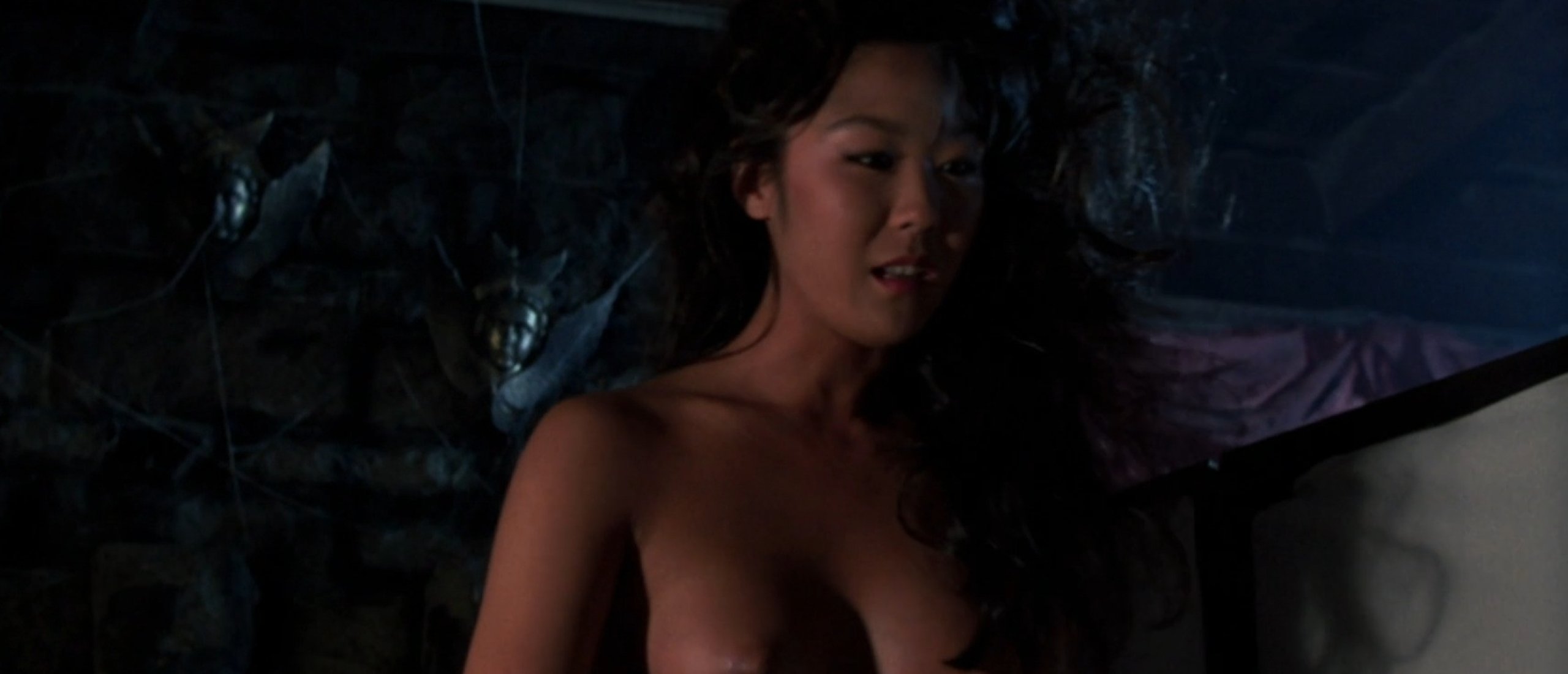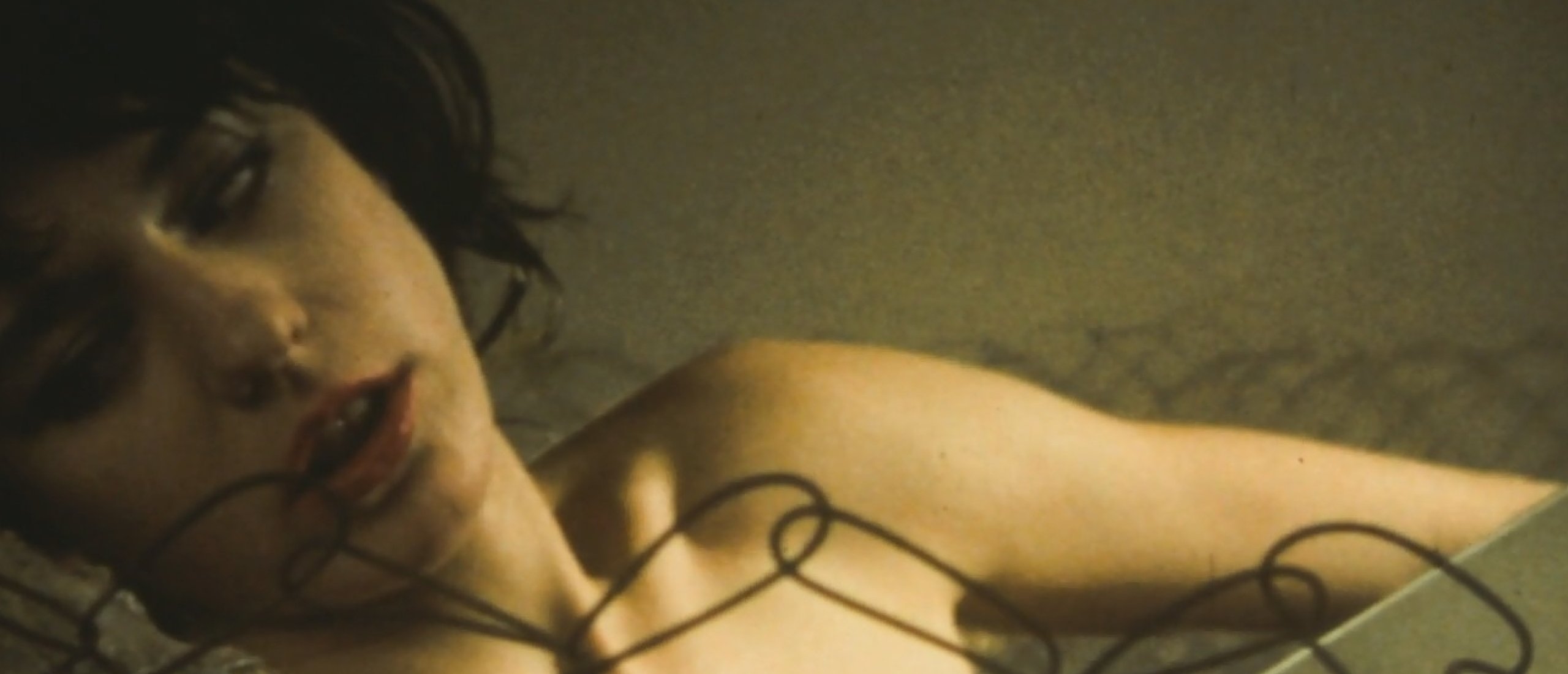
Eroticism As Transgression: A Survival Kit In Case You Fall In Love With A Corpse - Part I
Although it wasn't a success at the time of its release in 1958, Alfred Hitchcock's "Vertigo" is now considered by critics one of the greatest films in the history of cinema. Based on the novel "D'entre les morts" by Boileau-Narcejac, the film tells the story of the former police detective John "Scottie" Ferguson (James Stewart), who retired because an incident led him to develop acrophobia (an extreme fear of heights).
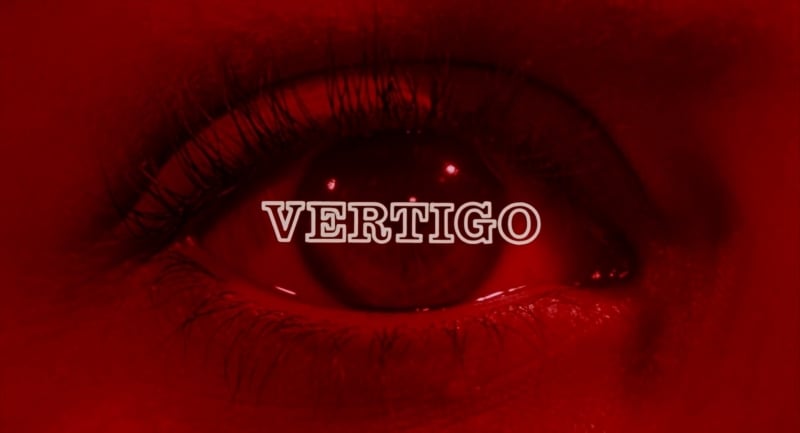
Fig.1. Vertigo (1958)
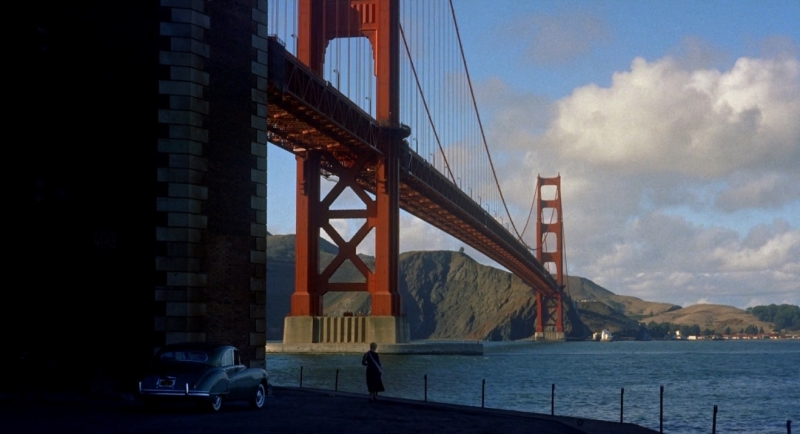
Fig.2. Bridge scene from Vertigo (1958)
Behaving Strangely
Scottie is hired by an acquaintance, Gavin Elster, as a private investigator to follow his wife, Madeleine (Kim Novak), who is behaving strangely. The detective ends up falling in love with her, but Madeleine, tormented by the spirit of an ancestor, Carlotta Valdés, commits suicide. Scottie, completely shaken and depressed, encounters Judy Barton on the streets of San Francisco, a woman whose appearance resembles Madeleine. The detective starts a relationship with Judy, whom he tries to transform into Madeleine by changing her clothes, makeup, and hairstyle.
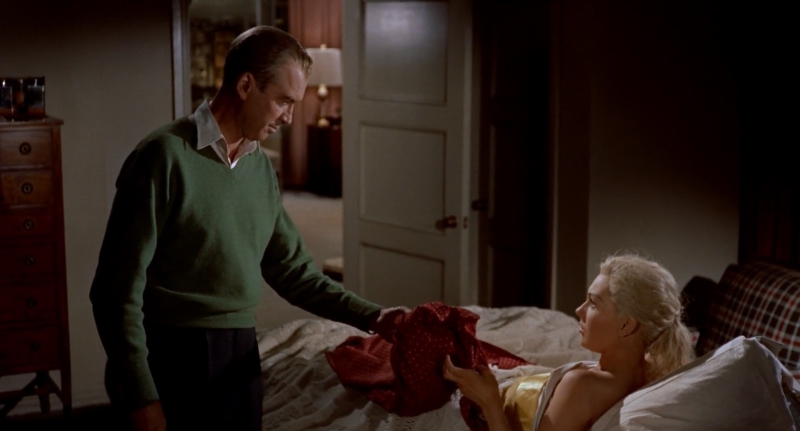
Fig.3. James Stewart and Kim Novak
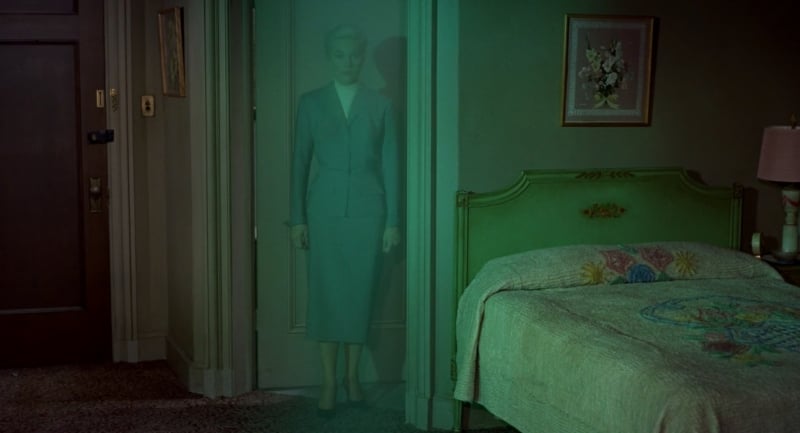
Fig.4.
Eroticism
"Vertigo" doesn't have a single nude scene; however, eroticism is explored throughout the film through insinuations and editing, such as when Scottie rescues the unconscious Madeleine after she attempts suicide in the waters of San Francisco Bay and changes her clothes. But eroticism in "Vertigo" is not limited to episodes like this. The transformation that Scottie undertakes with Judy in an attempt to recreate Madeleine is already an erotic act, as Alfred Hitchcock explains in an interview with François Truffaut:
"To put it plainly, the man wants to go to bed with a woman who’s dead; he is indulging in a form of necrophilia. […] That’s the basic situation in this picture. Cinematically, all of Stewart’s efforts to recreate the dead woman are shown in such a way that he seems to be trying to undress her, instead of the other way around. What I liked best is when the girl came back after having had her hair dyed blond. James Stewart is disappointed because she hasn’t put her hair up in a bun. What this really means is that the girl has almost stripped, but she still won’t take her knickers off. When he insists, she says, 'All right!' and goes into the bathroom while he waits outside. What Stewart is really waiting for is for the woman to emerge totally naked this time, and ready for love."
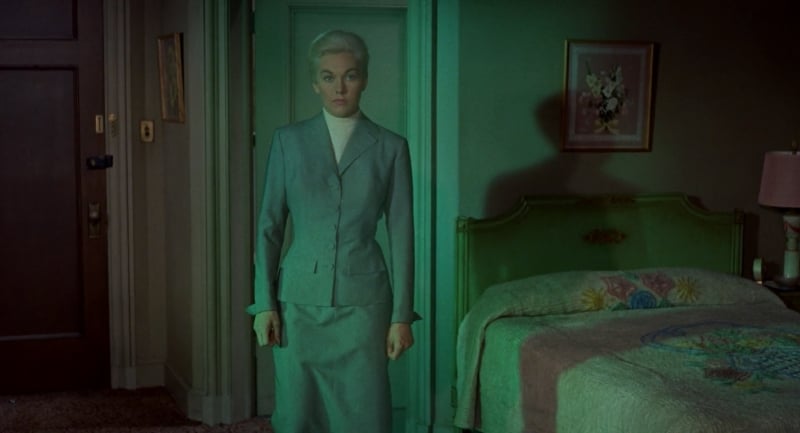
Fig.5.
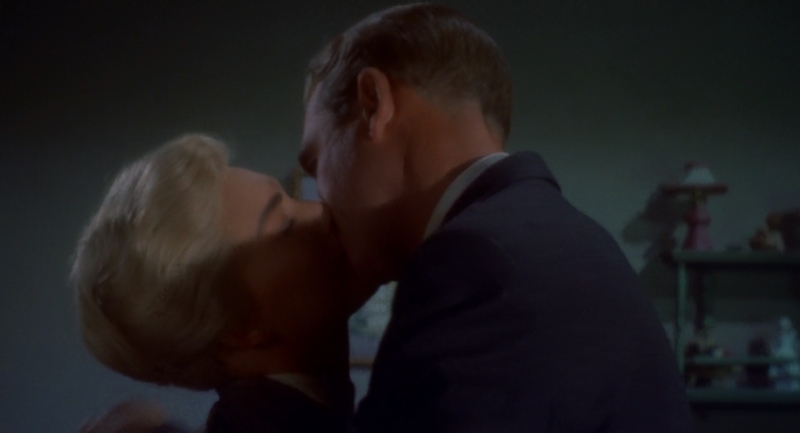
Fig.6.
Nekromantik
The theme of necrophilia in cinema is not limited to "Vertigo." "Laura" (1944), produced and directed by Otto Preminger, is considered by some critics as a film whose plot also involves necrophilia. If in these productions, eroticism and necrophilia are addressed subtly, we cannot say the same about "Nekromantik" (1987), a film written and directed by Jörg Buttgereit.
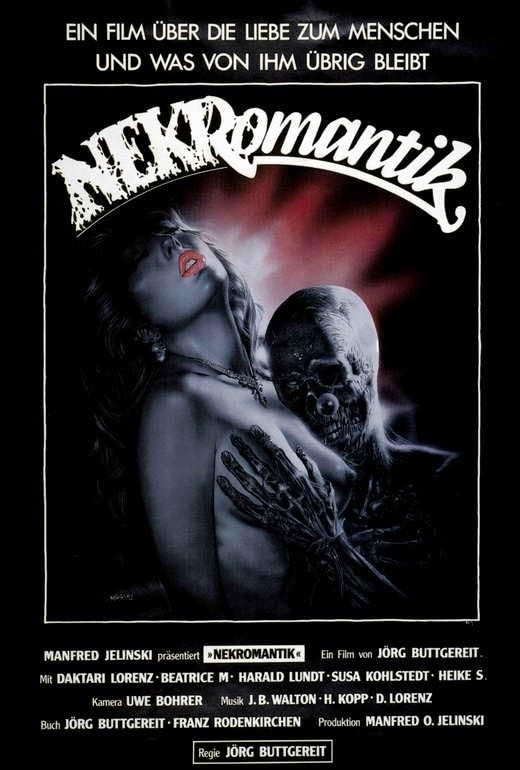
Fig.7. Film affiche for Nekromantik (1987)
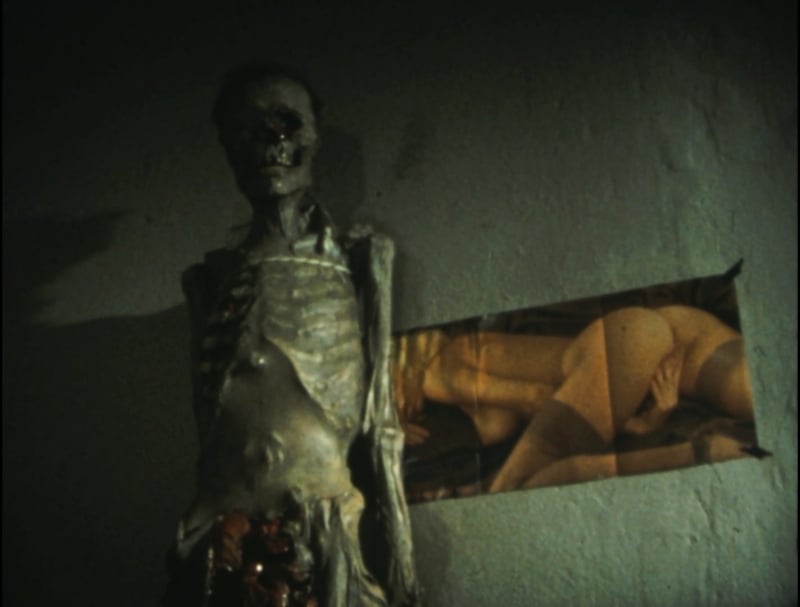
Fig.8. Nekromantik (1987)
Fascinated By the Corpse
The plot revolves around Robert, who works collecting cadavers for a cleaning company after violent deaths. His work allows him to explore the necrophilia, which is also shared by his wife Betty. Responding to a call from the company, Robert finds a corpse in an advanced state of decay in a lake. Fascinated by the corpse, he takes it home as a gift for Betty. The two end up having sex with it, onto which they attach a piece of a wooden chair leg, allowing Betty to use it as a phallus. "Nekromantik" can be considered an ode to necrophilia, which from the opening minutes of the film is revered by Robert when he takes home the pieces of the corpses.
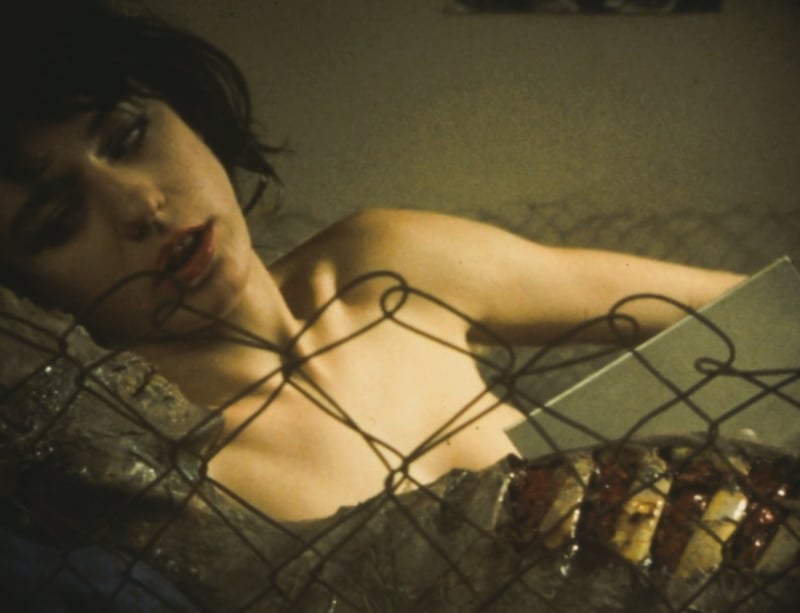
Fig.9. Nekromantik (1987)
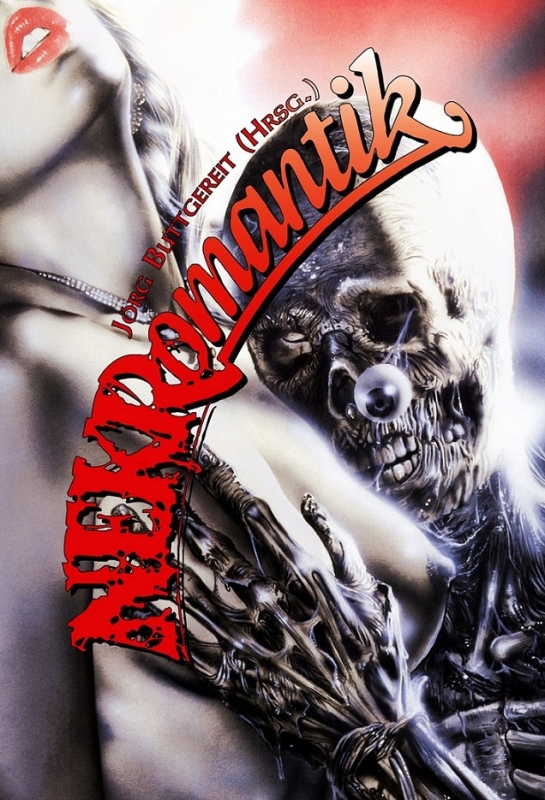
Fig.10. Nekromantik (1987)
In the exclusive Premium edition you can discover more about the necrophiliac theme in Nekromantik, an examination of the Spanish horror short film Aftermath (1994) which explores the theme explicitly, the beauty of this extreme film, the aesthetics of the dissection scenes, many additional (and explicit) images and more...
Click HERE for the fascinating sequel

